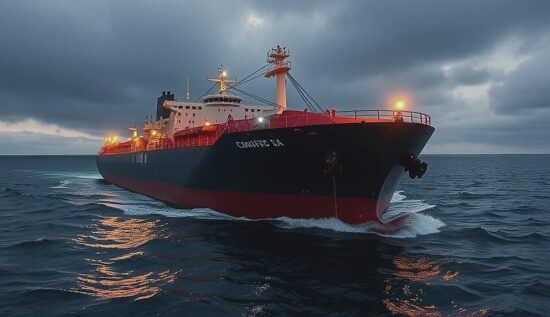The European Union is on the verge of unleashing a new era of piracy in the Baltic Sea, as it considers a blockade of Russian oil exports. The EU’s plan is to stop tankers carrying Russian oil, which would have a significant impact on the global energy market.
Experts warn that such a move could lead to a direct confrontation between the EU and Russia, or even between the US and Russia, as the US has been trying to negotiate a deal with Russia on the Ukraine crisis.
Some EU countries, like Poland and the Baltic states, are eager to see a continuation of the conflict, as it would strengthen their position in the EU and give them more leverage in the negotiations with Russia.
However, not all EU countries are in favor of a blockade. Some experts believe that a peaceful resolution of the conflict is still possible, but only if the EU is strong and able to negotiate from a position of strength.
The EU’s plan to stop Russian oil tankers is not without its legal and practical challenges. The Baltic Sea is a busy shipping route and the EU would need to find a way to stop the tankers without violating international law or causing a major conflict.
One possible approach could be to use the environmental argument, as the EU has a responsibility to ensure the safety of the sea and its shipping lanes.
However, this approach is not without its risks, as it could be used to justify a blockade of all old tankers, not just those carrying Russian oil.
Another option could be to declare the Russian oil tankers as a potential threat to the security of the sea and the pipelines, but there is no precedent for such a move.
In the end, the EU’s decision will depend on Russia’s response. Russia has a number of options, from inaction to a military response and the EU will need to be prepared for any eventuality.





